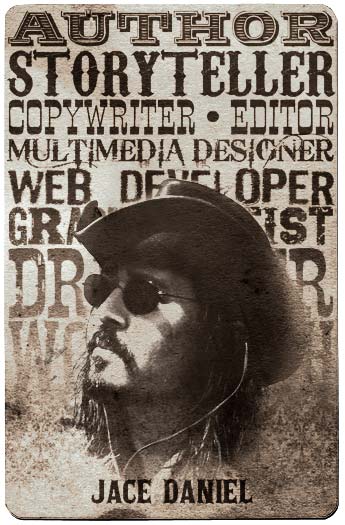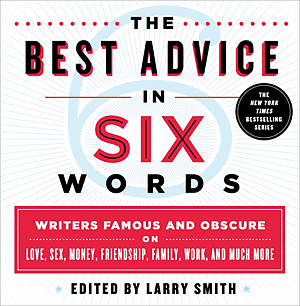This has never been a political site, nor will it ever be. But there is something on my mind and heart, and I need to bleed it out here for permanent record. It’s also been a little while since I’ve done any analytical writing, and, well, I suppose I just need to jam.
It’s been quite an eventful couple weeks. Not only have there been lots of exciting changes on a personal level, but our country’s in the middle of a significant time in our history when it comes to social issues and civil rights. It’s the kind of stuff that’s huge enough to make you stop what you’re doing, take a deep breath, and start paying attention to things that, during any other year, you’d be quite content not caring about.
After eight years of disillusionment with our own country, it’s refreshing to see a new wave of enthusiasm and hope in fellow Americans who were a hair away from giving up on us. I’ve even got family that’s become so disgusted with what we’ve become that they went so far as to completely sever ties with the country they used to call home, and relocate to another hemisphere. So I rejoice right now in seeing so many Americans back on the team, their heads in the game, emotionally reinvesting themselves in what it means to be a proud American. USA, BABY!
It seems America is at odds with herself on a few things, particularly concerning an issue in California that is causing quite a stir. I don’t want to get into that here, as Keith Olbermann has already done an admirable job at bringing a voice of reason to the situation. But before leaving that specific issue, I do want to reiterate the perspective Olbermann unleashed with regards to all these Americans getting their panties in a wad at the idea of “redefining marriage” and “not preserving the sanctity of marriage” and “going against tradition” and “not protecting the family”. He reminds us that in 1967, sixteen states in the Union forbade a marriage between a black person and a white person. Such a union redefined marriage. It didn’t preserve the sanctity of marriage. It went against tradition. It didn’t protect the idea of family. What did this mean in a practical sense? It meant that the parents of our next president, in 1967, could not have been legally married in a third of the country their son would grow up to lead.
Think about that for a few seconds. And another few.
This fact hits me personally. My parents were married in 1967. While my father is not black, he sure as hell ain’t white either. Whether his marriage to my white mother would’ve been illegal or not, his relationship with her — and, subsequently, their conception of me — would be, at the very least, frowned upon by roughly one out of every three people in the country. What do I think of these people?
FUCK THEM.
Okay, enough talk about bigotry. I want to back up a bit and get down to some fundamentals. I’m going to talk a little about language, vocabulary, and subtext.
What has bothered me in the past, and has now risen to the surface to the point where I can’t ignore it anymore, is the American subculture that tries to support its social arguments with what our “founding fathers” had intended for this country since its inception. It’s become sort of their “go to” device in any legislative debate. Our forefathers this, our founding fathers that.
Today we find ourselves in civil arguments that beg us to carefully study what our founding fathers were thinking when they severed ties with Great Britain in order to throw their own party, with their own rules. Why were they so pissed off? England wasn’t forbidding them to believe in God, for England is a Christian country. IT WAS MORE THAN THAT. I’ve spent a few minutes brushing up on the biographies of America’s top three founding fathers: John Adams, Thomas Jefferson, and Benjamin Franklin. For those of you who habitually use “our forefathers’ intentions” to support your social arguments, I ask you to review the biographies of these men, particularly their views on religion, both on personal levels as well as how it should apply to a government of people. Start with Wikipedia. It’s almost laughable that you’d back up your arguments with John, Tom, and Ben’s philosophies, as they were clearly not in agreement with you.
Okay, now for some analysis.
We have a modest library of catch-phrases that include the word “God” in them. Our Pledge of Allegiance includes the phrase “…one nation under God”, and our country’s tagline is “In God We Trust”. I don’t know what’s happened, but somewhere along the way, hard-right-wing Americans have taken these key phrases, arbitrarily placed them into a context that supports their own philosophies, and then rallied entire social movements around these simple sets of English words. Two good examples of such rallies would be the argument over prayer in schools, and the argument that evolution should not (and Creation should) be taught in schools.
But for the purpose of this blog entry, I don’t want to get into regurgitated discussions of philosophy, religion, or politics. I want to focus on linguistics, language, and subtext. Plain English. These are the things I love to study. So, let’s have at it. Come with me.
Consider our nation’s tagline:
IN GOD WE TRUST.
Boom. Solid. A winner, right? A four-word hit. While this motto was not created until the days of Lincoln, it is still rooted in the fundamental view of our founding fathers. (Incidentally, they were using “E Pluberis Unum”, meaning “from many, one”. That’s the tagline that was used on the Great Seal in 1782. Think about those three words for a second. From many, one. Are we living up to them today?) Now, I don’t know about you, but as far back as I can remember, every authoritative figure in my life took our four-word phrase, IN GOD WE TRUST, and treated it as an item in a list. Like, you know, in God we trust, in God we love, in God we believe, and so on. Hey, in God we do everything. After all, we’re God-fearing!
But that’s not what our guys meant, people.
IN GOD WE TRUST has everything to do with context. We must consider the conditions the forefathers were in, and why they went so far as to leave their mother country to start their own. The emphasis in the four-word phrase is not trust, but God. When we consider the phrase in context, it is, through reflection, echoing what our founding fathers were boldly stating:
In GOD we trust. Not the queen, not Caesar, not a governor, and not the guy up the street. By definition, our God-given freedom requires that we are only obligated to answer to the one who’s given us that freedom. And it sure as hell ain’t the Royal Family. Please.
The error many Americans have made in the interpretation of this four-word phrase is a subtle yet profound one. They’ve taken the phrase “in God we trust” and regarded it as something we should do. We should trust God. In context, this is not what the forefathers were saying. The phrase is not stating what we’re obligated to do, but what were not obligated to do. “In God we trust” is in fact saying “We answer to no queen, no government, and no other individual. We proclaim ourselves free of such nonsense.”
In our Pledge of Allegiance, the phrase “…one nation under God” works the same way. The words “under God” were added after the fact on an appeal by the Knights of Columbus*, directly inspired by the wording in Lincoln’s Gettysburg Address. The wording of the Pledge of Allegiance is probably a separate argument, but if I’m understanding Lincoln’s message correctly, considering the situation in 1863, the words “one nation under God” are in fact saying not so much what Americans are (a free people), but what we aren’t (a people deprived of freedom). In writing, that’s called subtext. It’s what’s being implied. It’s the stuff between the lines.
This all leads me to something more personal, but entirely related. While pondering our country’s tagline and Pledge of Allegiance, I couldn’t help from thinking about my own middle name. Daniel. As a lover of the alphabet and words from Day One, I used to read dictionaries and encyclopedias from cover to cover. Being no stranger to research, I was quite aware of what Daniel means.
From Hebrew:
DANIEL = GOD IS MY JUDGE.
And yet, again, it seems the conventional interpretation regards “God is my judge” as just an item in a list. That is, God is my judge, God is my buddy, God is my protector, God is my pal, etc. But my gut has always known the truth; the emphasis is on God, not judge. God is my judge. Not you, not the kid on the playground, not even my own mother. The spirit of the name is decidedly American, and it’s a name I’m honored to have.
In plain modern English:
DANIEL = YOU’RE NOT MY JUDGE, SO FUCK OFF.
That’s it for now. Anybody have any good jokes?
*The phrase “One nation, under God” didn’t show up in the official Pledge of Allegiance until 1954, and the first record of its use dates back only to 1948. So, for the first 172 years (or 178, depending on how you count) of our nation’s history, we managed to ally without Divine Intervention. (via Thane)












Comments on this entry are closed.